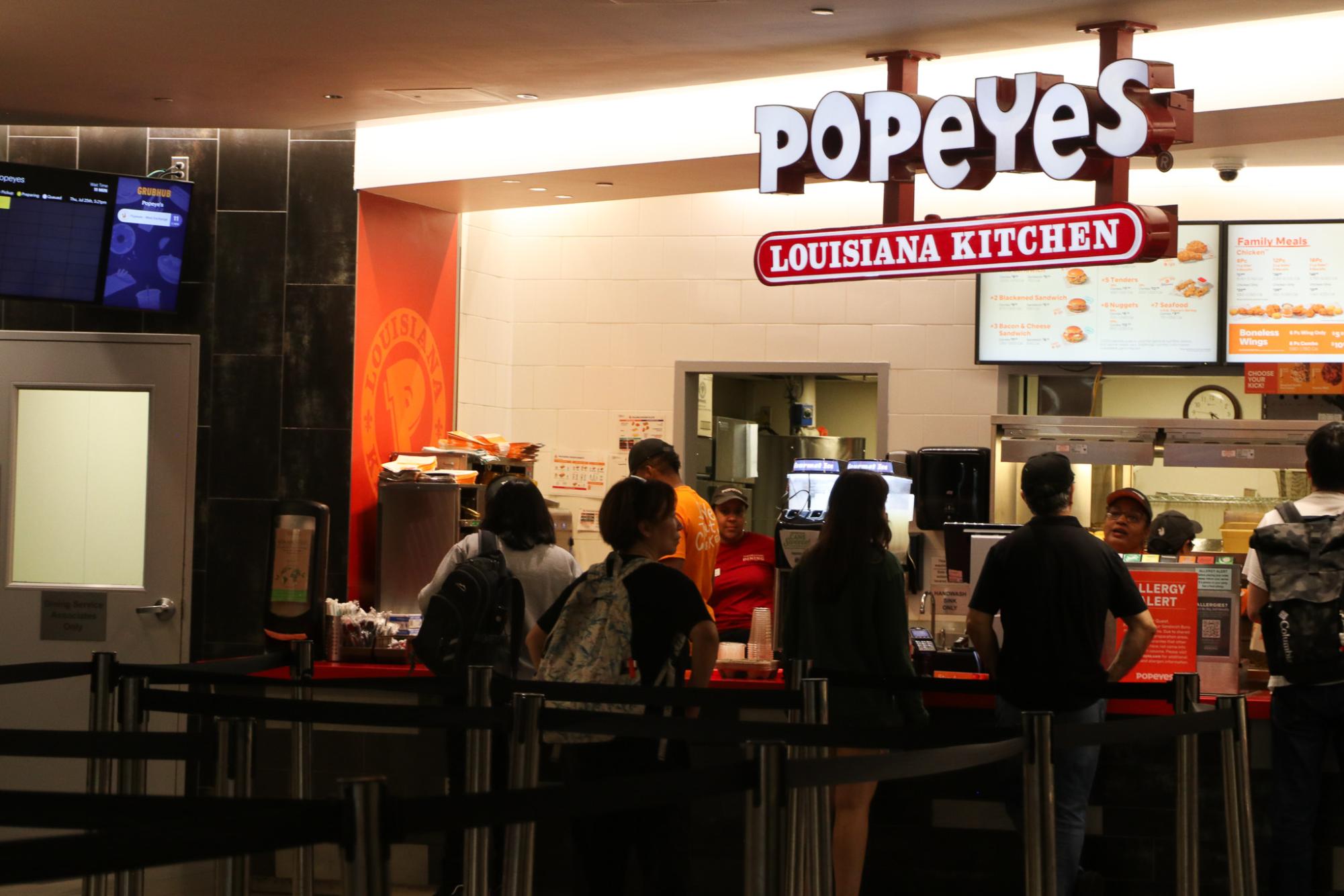After over 20 years of offering dining plans on a meals-per-week basis, Northeastern announced in June new dining plans that will offer a set number of meals per semester and mostly eliminate meal exchanges.
The overhauled dining plans — created from a collaboration between the Student Government Association’s Dining Advisory Board and the university’s administration — will take effect Aug. 25. The university is still remolding Swipe2Care, a program that allowed students to donate their leftover weekly meal swipes to other students in need, to fit the new meal plans, according to an article by university-run news outlet Northeastern Global News.
The new meal plan system, dubbed “For the Love of Food,” will give students a set number of meals per semester as opposed to a fixed number per week. It also eliminates meal swipes in favor of more dining dollars. The plans range from $2,700 for 100 swipes to $4,300 a semester for unlimited swipes.
Members of the Dining Advisory Board thought the new plans “would be a better way for students to budget [for] themselves and not lose as many meals and not lose as much money over the course of a year,” said Greg Katz, who graduated in spring 2024 with a bachelor’s degree in mechanical engineering. Katz was vice president of campus affairs for the Student Government Association, or SGA, and co-chair of the Dining Advisory Board until his graduation.
SGA created the Dining Advisory Board under its campus affairs division in 2023. It’s comprised of 11 undergraduate and graduate students, including two co-chairs. The board worked on drafting a revised meal plan throughout the 2023-24 school year.
Katz said leading up to the board’s inception, the “project was thought up by several different people independent of one another that came together to work on this.” The administrators SGA worked with included Chris Abayasinghe, formerly the associate vice president of business services and currently the associate vice president of finance and business operations, and Linda Nardella, senior director of campus dining.
At multiple “listening sessions” and through surveys, students provided feedback that traditional meal plans offered by the university since 2019 — seven, 12, 17 or unlimited meals per week — did not give students enough options, said Zi Glucksman, a rising fourth-year politics, philosophy, and economics major who served as a co-chair and co-founder of the Dining Advisory Board during the 2023-24 school year.
“The board’s role in the reform was to gather as much student feedback and sentiments about the meal plan as possible so that we could direct reform to better meet the needs and preferences of the student body,” Glucksman said.
Glucksman said the feedback led the board to declare three main pillars in its meal plan reform: “Affordability, flexibility and variety.”
Northeastern’s meal swipe rates, along with other on-campus living expenses, have increased over the past 20 years. In the 2004-05 academic year, swipes on the five-meals-per-week plan had an average value of $12.87. For the 2024-25 dining plans, swipes on the least expensive meal plan of 100-meals-per-semester are worth $25, whereas the $4,300 unlimited plan — with an estimated average of 21 meals per week — has a value of approximately $12.38 per swipe.
Previously, Glucksman was the lead organizer for No Hungry Huskies, a campaign created by Northeastern’s Young Democratic Socialists of America chapter. The group advocates for addressing food insecurity among college students. Glucksman said he drew inspiration from his activism with No Hungry Huskies for some of the reforms proposed by the Dining Advisory Board.
Students consistently reported affordability as one of their primary concerns, Glucksman said, and the rising costs of dining became one of the primary focuses of the No Hungry Huskies campaign.
“I was dropping down in plans just due to lack of affordability,” said Nicole Contreras, a rising fourth-year electrical and computer engineering combined major and one of the seven at-large students on the Dining Advisory Board. “It didn’t really fit what I needed as a student.”

Rising third-year biology and political science combined major Kayla To said that when she was on a traditional 12-meals-per-week plan, she would often not have the opportunity to finish spending her swipes before she went home for the weekend and the meals would reset. She said she would “rush to Outtakes on Fridays to spend as many leftover swipes as possible.”
“It’s a bunch of snacks for one swipe, three swipes max,” To said. “But I really have no choice because at the end of the week, sometimes I just don’t use it all and then I’m like, ‘Oh my gosh, all my swipes are going to waste.’”
Another primary concern for students was the loss of meal exchanges, Glucksman said. The new plans still allow for meal swipes to be used at Outtakes at Stetson West; however, there is a “greater emphasis” on dining dollars now, he said.
Glucksman said that restaurants in the Curry Student Center that previously accepted meal swipes were not giving students the “full dollar amount for their meal,” meaning that although each meal swipe had a dollar value of $21, the meal might really be worth around $12. Now, with more dining dollars, students have “more flexibility” in where and how they spend their money.
Nina Wolf, a rising second-year criminology and criminal justice combined major, highlighted the increased flexibility dining dollars in place of meal exchanges will provide, especially for students with dietary restrictions.
“With meal exchanges, it’s so limited,” Wolf said. “It’s like you can get this meal or this meal and a lot of times that won’t actually [work]. What if you can only have a certain [type of food] that’s not offered as a meal exchange? Then you have to use your dining dollars. But if you don’t have dining dollars then it’s just out of pocket.”
Through her work on the Dining Advisory Board, Contreras said that the reformed dining plans represent a step forward in the university’s efforts to continually evaluate student needs.
“[The previous] meal plan, for instance, hadn’t been really reevaluated in such a long time, and now it finally is [being reformed],” Contreras said. “And the [Dining Advisory Board] continuing to facilitate that connection between student and administration when it comes to dining…is really important, so that you have that conversation and that way the school is also aware of what its students needs are.”












